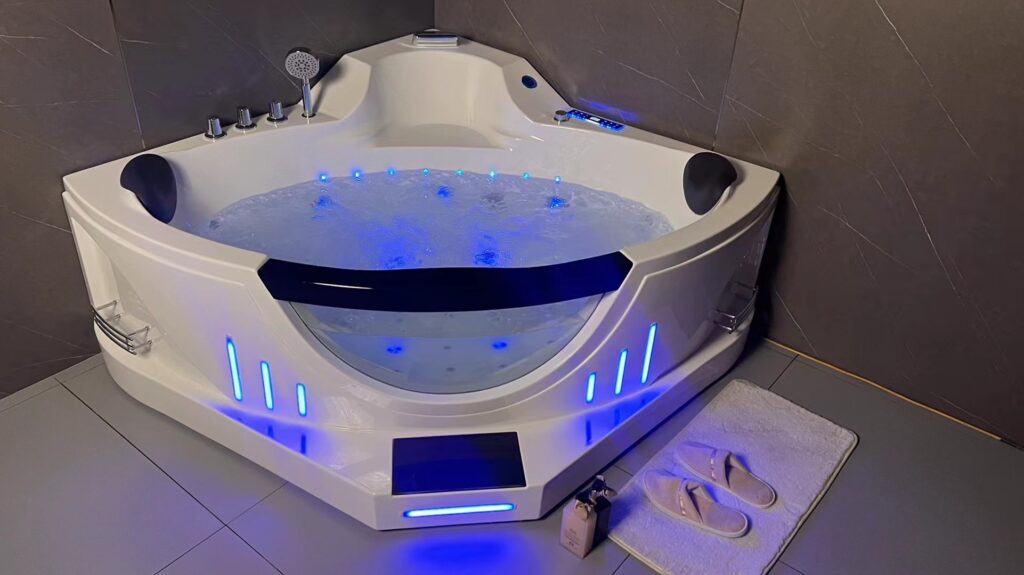What are the basic parameter requirements for massage bathtubs in the Middle East market?
The demand for massage bathtubs is growing in the Middle East market, especially in high-end residences, hotels and resorts. For this market, the design and selection of massage bathtubs need to meet specific parameters and requirements. The following are some common basic parameter requirements for massage bathtubs in the Middle East market:
1. Heat resistance and UV resistance
Climate adaptability: The climate in the Middle East is hot and dry, especially in the summer, the temperature may exceed 40℃, so massage bathtubs need to have good heat resistance.
Material UV resistance: Due to strong sunlight, the material must have high UV resistance to prevent the bathtub surface material from fading or aging, especially for products used outdoors.
2. Water treatment and filtration system
Water treatment system: Some areas in the Middle East have high water hardness and high mineral content in the water. Massage bathtubs need to be equipped with effective water treatment systems, such as filters, softeners, etc., to keep the water clean and prevent scale deposition.
Disinfection system: For hygiene and cleanliness, many high-end markets will require ozone disinfection or UV disinfection systems.
3. Energy consumption and energy-saving performance
Energy-saving design: Due to the high cost of energy consumption in the Middle East, consumers usually require massage bathtubs to have energy-saving performance in heating and circulation systems, such as efficient heaters and bathtub wall materials with good thermal insulation.
Intelligent control system: Adjustable temperature control and timer switch functions are necessary to reduce unnecessary energy consumption.
4. Pumps and nozzles
Efficient pumps: To provide a more comfortable massage experience, efficient and silent pump systems are required, especially in luxury homes and hotels.
Adjustable nozzles: The layout and adjustability of the nozzles are very important, and the strength and direction of the water flow can be adjusted according to user needs.
5. Size and capacity
Multiple size options: Due to the large space in luxury homes and hotels in the Middle East, the market has diverse requirements for the size and volume of massage bathtubs. Home users may need small to medium-sized bathtubs, while high-end villas or hotels may prefer larger capacity bathtubs that can accommodate up to 6-8 people.
6. Corrosion resistance
Corrosion resistance: Due to the salt spray environment in many areas near the coastline in the Middle East, outdoor jacuzzis need to use corrosion-resistant materials (such as stainless steel or composite materials) to prevent rust and corrosion.
7. Certification and compliance
Compliance with international standards: Jacuzzis need to comply with local quality and safety standards in the Middle East, such as the International Electrotechnical Commission (IEC) and the local GCC certification (Gulf Cooperation Council).
Electrical safety: Electrical equipment for high temperature and outdoor environments must meet strict safety requirements, such as waterproof level IPX5 or higher protection standards.
8. Comfort and luxury
Seat and ergonomic design: The seat of the jacuzzis needs to be ergonomic to ensure user comfort.
Accessories and luxury: Some high-end markets prefer advanced features such as LED lights, Bluetooth speakers, and waterfall outlets.
9. Localization needs
Adapt to local culture: Users in some Middle Eastern countries may have certain cultural concerns about using public or shared bathtubs, so the demand for customized jacuzzis may be high.
Automatic cleaning system: As local consumers pay attention to cleanliness, jacuzzis with automatic drainage and cleaning functions are popular in the market.
Based on the above requirements, massage bathtub manufacturers need to carry out special design and optimization for the weather resistance, energy saving, luxury and cultural habits of their products when entering the Middle East market.



